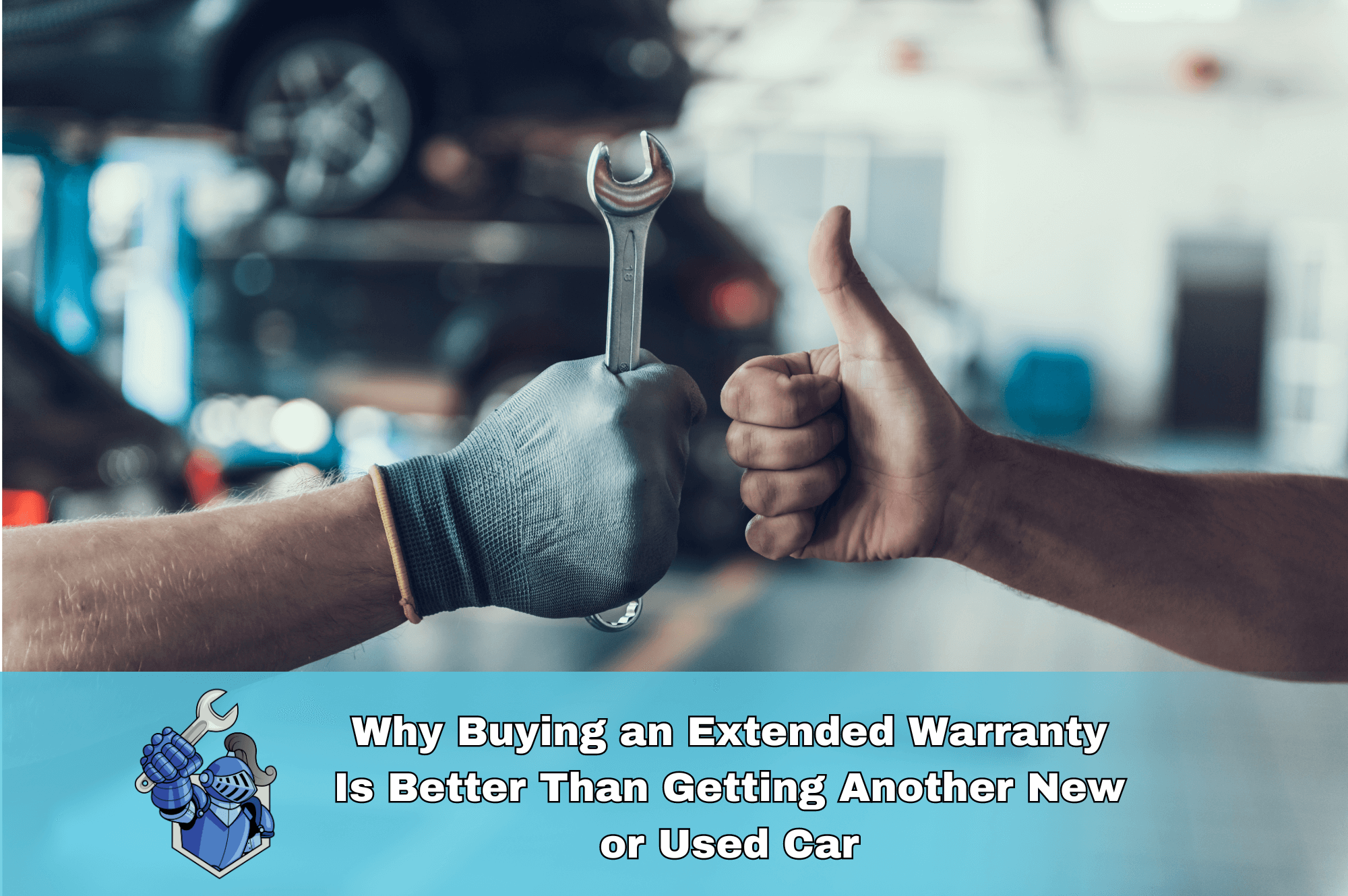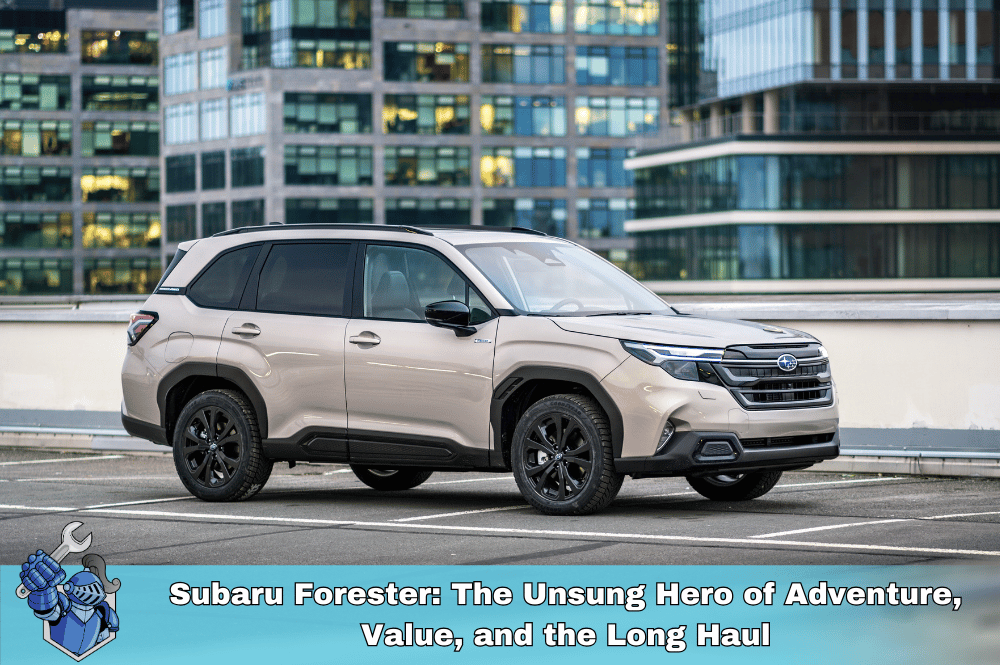When deciding between buying a new or used car or opting for an extended warranty on your current vehicle, several factors come into play. Financial considerations, practical benefits, and emotional aspects all influence this significant decision. This blog explores why buying an extended warranty is often the better choice compared to getting another vehicle.
Financial Considerations
1. Cost-Effectiveness
- Extended Warranty Cost vs. New Car Payments: Extended warranties typically cost between $1,000 to $3,000, depending on coverage and vehicle type. In contrast, new car payments can range significantly higher, often reaching $400 to $700 per month, excluding insurance and maintenance costs.
- Depreciation: New cars depreciate quickly, losing up to 20% of their value within the first year and about 60% after five years. A used car, while depreciating slower, still loses value. An extended warranty helps maintain your car’s value by ensuring it remains in good working condition.
2. Predictable Expenses
- Maintenance and Repairs: With an extended warranty, unexpected repair costs are covered, making your financial planning more predictable. Without it, a major repair, such as a transmission or engine replacement, can cost thousands of dollars.
Practical Benefits
1. Peace of Mind
- Security Against Breakdowns: An extended warranty offers peace of mind knowing that major mechanical failures are covered. This security is invaluable, especially if you rely heavily on your vehicle for daily transportation.
- Comprehensive Coverage Options: Extended warranties can be tailored to your needs, covering anything from the powertrain to bumper-to-bumper, including electronics and other advanced systems.
2. Convenience
- Continued Familiarity: Keeping your current car means you stay familiar with its handling, features, and maintenance needs. Buying a new car involves a learning curve, adjusting to new controls and features, which can be time-consuming and inconvenient.
- Dealer Services and Extras: Many extended warranties offer additional perks such as roadside assistance, towing, and rental car reimbursement, adding further convenience and value.
Emotional Factors
1. Sentimental Value
- Attachment to Your Vehicle: Many people develop a sentimental attachment to their cars. Opting for an extended warranty allows you to keep a vehicle you love and have invested time and money into.
2. Environmental Impact
- Sustainability: Extending the life of your current vehicle is more environmentally friendly than purchasing a new one. Manufacturing a new car involves significant resource consumption and emissions. By maintaining and repairing your current vehicle, you contribute to environmental conservation.
Comparing Extended Warranties to New/Used Car Purchases
1. New Cars
- High Initial Cost: New cars come with a high price tag, immediate depreciation, and higher insurance premiums. While they offer the latest features and warranties, these benefits come at a substantial cost.
- Warranty Overlap: New cars come with manufacturer warranties that may overlap with an extended warranty. It’s often better to wait until the original warranty is near its end before purchasing an extended warranty to avoid redundant coverage.
2. Used Cars
- Uncertain History: Buying a used car often involves uncertainties regarding its history and potential hidden problems. Even certified pre-owned vehicles, though inspected, can have issues that surface later.
- Additional Costs: Used cars might require immediate repairs or maintenance, adding to the initial purchase cost. An extended warranty on your current vehicle eliminates these uncertainties, providing coverage for existing issues.
Alternatives to Extended Warranties
While an extended warranty is a wise choice for many, it's not the only option. Here are a few alternatives:
1. Emergency Fund
- Savings Cushion: Building an emergency fund specifically for car repairs can provide a similar safety net. However, this requires discipline and time to accumulate sufficient savings.
2. Car Repair Insurance
- Insurance Policies: Some insurers offer mechanical breakdown insurance, which covers unexpected repairs. These policies are generally limited to newer vehicles and might be less comprehensive than extended warranties.
3. Buy a Reliable Car
- Research and Reliability: Investing in a car known for its reliability and low maintenance costs can reduce the need for an extended warranty. However, even the most reliable cars can experience unexpected issues.
Additional Benefits of Extended Warranties
1. Transferable Coverage
- Increase Resale Value: Many extended warranties are transferable, meaning if you decide to sell your car, the warranty can be transferred to the new owner. This can make your car more attractive to potential buyers, potentially increasing its resale value.
2. Customizable Plans
- Tailored to Your Needs: Extended warranties often come with various levels of coverage and optional add-ons, allowing you to customize the plan to fit your specific needs and budget. This flexibility ensures you only pay for the coverage you need.
3. Protection Against Inflation
- Lock in Costs: By purchasing an extended warranty, you lock in the cost of future repairs at today's prices, protecting yourself against inflation and rising labor and parts costs.
4. Extended Coverage Beyond Manufacturer Warranty
- Peace of Mind for Older Vehicles: Manufacturer warranties typically expire after a few years or a certain number of miles. An extended warranty can provide coverage well beyond the manufacturer's warranty period, offering peace of mind for older vehicles.
5. Enhanced Service Quality
- Access to Certified Technicians: Extended warranty providers often require repairs to be done at certified service centers or dealerships. This ensures that qualified technicians using quality parts handle your vehicle, potentially extending its lifespan and maintaining its performance.
Case Studies and Real-World Examples
1. Case Study: High Mileage Drivers
- Extended Warranty Savings: Consider a high-mileage driver who puts 20,000 miles on their car annually. Without an extended warranty, the likelihood of expensive repairs increases significantly as the vehicle ages. An extended warranty can save thousands in out-of-pocket repair costs over the vehicle's lifespan.
2. Case Study: Advanced Technology Vehicles
- Protection for Advanced Systems: Modern vehicles are equipped with advanced technology and electronic systems that can be costly to repair. An extended warranty can provide coverage for these high-tech components, ensuring they remain functional without breaking the bank.
3. Case Study: Business Owners
- Fleet Management: Business owners with a fleet of vehicles can greatly benefit from extended warranties. They provide predictable repair costs, reducing the financial risk associated with maintaining multiple vehicles. This allows businesses to budget more accurately and allocate funds more effectively.
4. Case Study: Families with Older Vehicles
- Family Budgeting: For families with older vehicles, extended warranties can alleviate the financial strain of unexpected repairs. By covering major mechanical issues, families can avoid dipping into savings or emergency funds, ensuring financial stability.
Considerations for Choosing an Extended Warranty
1. Research and Compare Providers
- Reputation and Reviews: Look for providers with good reputations and positive customer reviews. Websites like NerdWallet and Experian offer insights and comparisons of different warranty providers.
- Coverage and Exclusions: Carefully review what is covered and what is excluded in the warranty. Make sure it aligns with your needs and covers the components most likely to fail.
2. Check for Hidden Costs
- Deductibles and Fees: Be aware of any deductibles or additional fees associated with the warranty. Some warranties may have low upfront costs but high deductibles, which can add up over time.
3. Consider the Length of Coverage
- Term Length: Choose a warranty term that matches how long you plan to keep the vehicle. If you plan to keep the car for many years, a longer-term warranty may be beneficial.
4. Assess the Claims Process
- Ease of Use: The claims process should be straightforward and hassle-free. Check if the provider has a simple online or phone claims process and if they have a network of repair shops for convenience.
5. Look for Added Benefits
- Additional Services: Some extended warranties come with extra benefits such as roadside assistance, rental car reimbursement, and trip interruption coverage. These can add significant value to your warranty.
FAQ
Q1: How much does an extended warranty typically cost?
A: Extended warranties usually range from $1,000 to $3,000, depending on the level of coverage and the vehicle's make and model.
Q2: Can I buy an extended warranty after purchasing my car?
A: Yes, you can purchase an extended warranty at any time, although it’s often recommended to buy it before the manufacturer’s warranty expires to ensure continuous coverage.
Q3: Are extended warranties worth the investment?
A: Extended warranties can be worth it if you plan to keep your car for a long time, drive a high-mileage vehicle, or cannot afford unexpected major repairs.
Q4: What does an extended warranty cover?
A: Coverage varies, but typically includes repairs for major components like the engine, transmission, and electrical systems. Some warranties also offer roadside assistance and rental car reimbursement.
Q5: What are the alternatives to buying an extended warranty?
A: Alternatives include setting up an emergency fund for repairs, purchasing car repair insurance, or investing in a vehicle known for its reliability.
Conclusion
Choosing between buying an extended warranty and purchasing a new or used car depends on your financial situation, vehicle needs, and personal preferences. However, an extended warranty often provides a cost-effective, convenient, and environmentally friendly solution to ensure your vehicle remains reliable and protected against unexpected repair costs. For more information on extended warranties and to explore coverage options, visit our NobleQuote Learning Center.
References:
Suggestions for you
Read MoreLet’s work together
Every week we showcase three charitable organizations that our donations are sent to. Our clients are able to choose which of these three will receive their gift when they add coverage to their vehicle...




